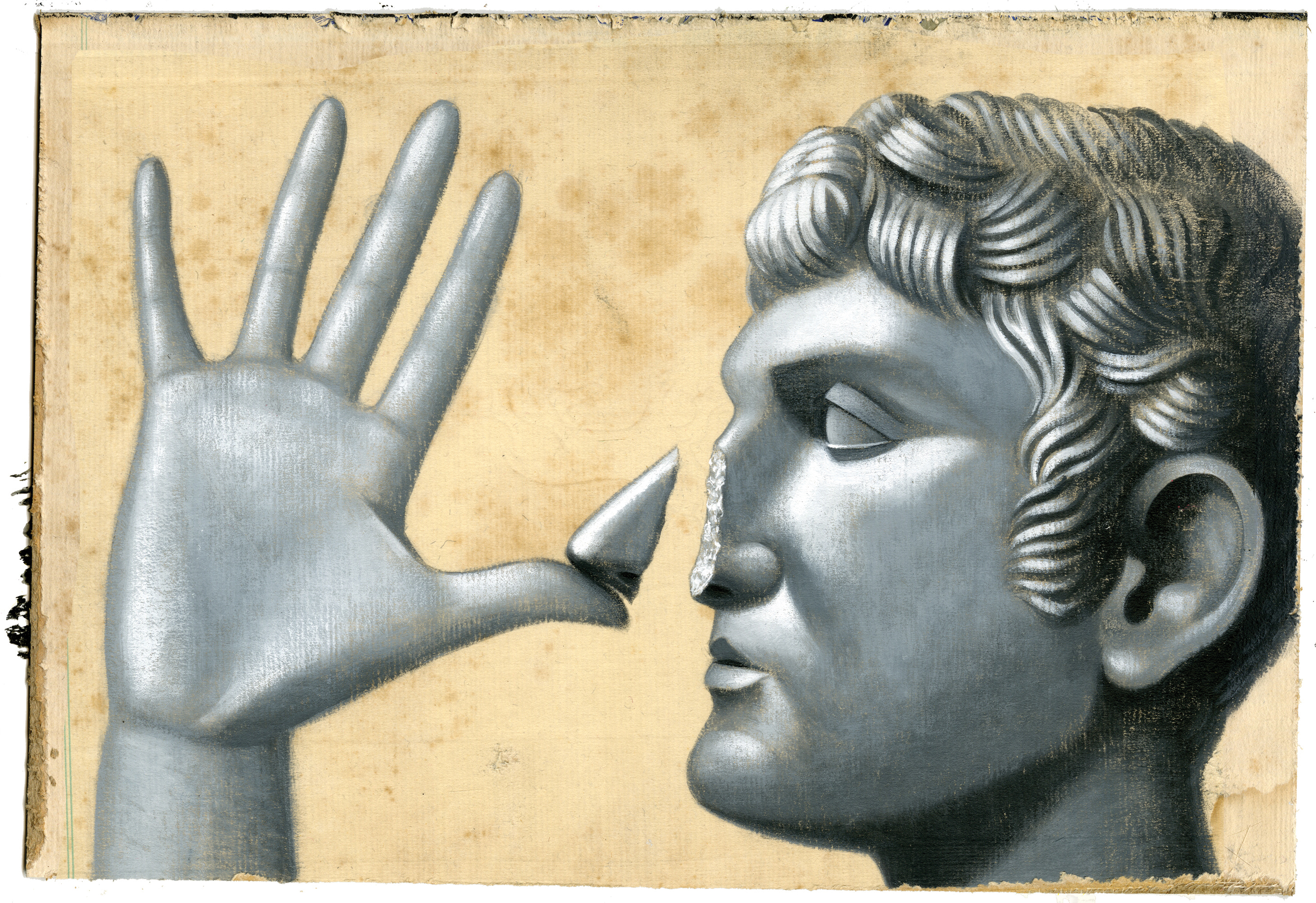
Ralph Rosen
During the 2016 presidential election, Saturday Night Live’s political skits became a regular feature on the Sunday morning news. SNL has continued to satirize President Donald Trump, who slams the show on Twitter in turn. Though the media are new, they’re continuing a tradition that is centuries old, and whose tropes and rules have remained strikingly similar across historical periods. Some years ago I wrote a comparative study of the Roman poet Juvenal and rapper Eminem to make that point.
A short, working definition of satire is that it’s a form of performance—literary or dramatic, for example—in which satirists present themselves as aggrieved by individuals, groups, or institutions; they take a stance of indignation and self-righteousness against their chosen targets; and respond with ridicule, mockery, and invective. It's a mode of complaint.
Satirists like to imagine themselves as oppressed by the world and by people or institutions more powerful than themselves. They routinely present themselves as angry and powerless, but poised at the same time to fight back against all the people and things they object to. And they always claim the moral high ground—without that, no one would have much reason to sympathize with them.
Satire presents itself as something that is straightforward, truthful, and honest, but it's actually very complicated because it depends on a highly specific relationship between satirists and their audiences. With satire there are in fact two audiences. If I'm attacking politicians and saying that something has to change, there’s a kind of fiction that the politicians are supposed to be listening to me and hopefully will be persuaded of their evil ways. Of course, they almost never are, and as a satirist, I don't actually want them to be, because then I'd be out of a job!
The satirist’s ‘true’ audience, however, is the people who are listening to him or her as a performer. This is one thing I have always found intriguing about satire: It claims to be an agent of change, but in fact the people you're trying to please are already for the most part on your side.
As a performer, the first thing a satirist has to answer to is his audience—to make it funny. If that's actually the most important thing, as satirists typically say, it does call into question the idea that they’re there just to speak truth and tell it like it is, because they’re going to be the first ones to alter and distort things to get a good laugh.
Whatever the motivation, satirical authors of all periods love to claim that what they're doing is dangerous because they make powerful people angry. This has the effect of making satire appear even more risky and enticing.
Sometimes satirists do get into serious trouble, as we know all too well from recent events, and invariably defenders will claim that the satirists’ comic goals were misunderstood—as if that is supposed to make their mockery less threatening to targets. Lenny Bruce, a comedian in the 1950s and ‘60s, is an interesting example because he did get into legal trouble on obscenity charges, and in his last year, he often blurred the line between satire and preaching—lecturing his audiences on constitutional law, for example, often with little obvious humor.
It’s commonly thought that ‘anything goes’ in satire, but this is hardly the case. People get in trouble for different reasons at different times, but every period, and society, I think, has its limits and its pressure points. There's a kind of cultural rule book that people are supposed to follow, and when it gets violated, all hell can break loose and sometimes does.
It’s a longstanding and open question whether satire actually “does” anything beyond entertain. Of course everything depends on what one means by “does” here. Here's an example: Aristophanes was a famous political satirist in Classical Athens (5th century BCE). In 424 BCE, he wrote the play Knights, which is a violent, vitriolic rant against an Athenian demagogue named Cleon (whose portrayal in the play, by the way, bears a remarkable resemblance to recent comic representations of Donald Trump). But the next year the Athenians voted Cleon in as general.
That doesn't prove that all satire is ineffective, of course, but it's a great example of how people seemed to like the show—but it didn't make a huge difference when it came to actual political events. People seem to be able to take their comedy, go out of the “comedy club,” figuratively speaking, or turn off the TV, and know that, okay, now I'm in a zone of real life, where I need to approach things differently.
Ralph Rosen is Vartan Gregorian Professor of the Humanities and Professor and Undergraduate Chair in the Department of Classical Studies.